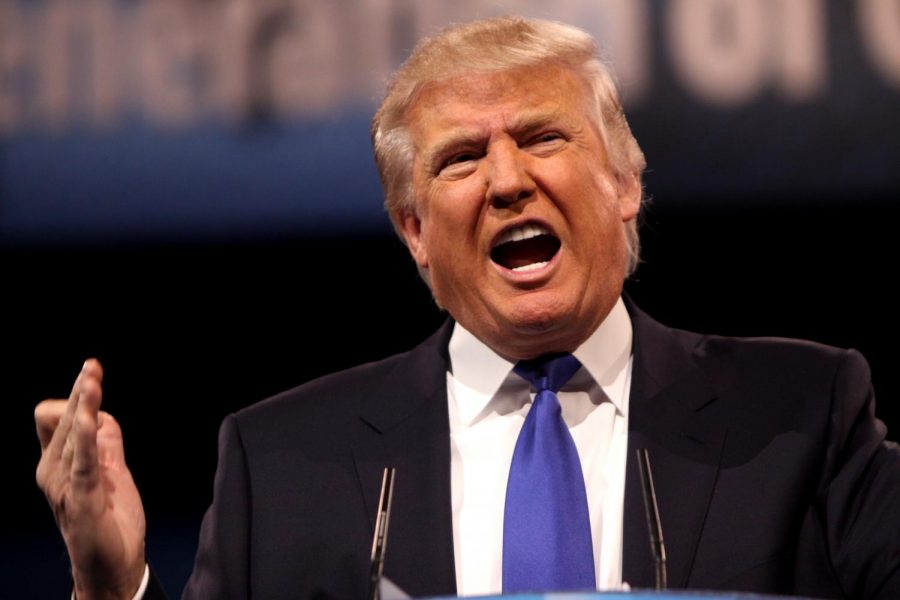What it’s like covering Trump
November 20, 2017
Remember that time Trump’s lawyer Marc Kasowitz emailed, “Watch your back, bitch”?
Or that time when Don Jr. and Ivanka were almost charged with felony fraud?
You remember that because we found out.
The day President Trump took office, our reporters laid out the topics they were going to cover.
Now, a year after the election, we’ve asked five of our reporters to tell us about the stories they’ve done and what has stuck out.
From Alec MacGillis, who covers politics and government
As I was reporting a piece on how things were going at HUD under the leadership of Ben Carson, I was surprised to hear from sources inside headquarters that Ben Carson’s wife, Candy, and one of his son’s, Ben Jr., had assumed a very visible role. But it was only when I covered Secretary Carson’s June trip to Baltimore that the full oddity of the family involvement became clear to me. On the first day of the visit, which was not disclosed to the public, I watched as Candy Carson, Ben Carson Jr., and even Ben Jr.’s wife joined in on meetings with the Baltimore mayor, city housing officials, and public health experts and authorities. The next day, at a community health fair in East Baltimore, I was amazed to watch as Ben Jr. served as an intermediary between his father’s top aides and two entrepreneurs seeking to pitch HUD on a business venture. We knew that the Trumps had made the White House a family affair. But it was only then dawning on me that that approach to governing had spread across the administration.
From Marcelo Rochabrun, who covers immigration
I’m always extra skeptical of stories that seem unbelievable — no matter how good the source is — but during the early months of the Trump administration, I found two of them.
The first was when I revealed that Trump’s original travel ban barred longtime permanent residents (green card holders) from traveling back to their home in the U.S. I had seen a draft of the executive order but was too skeptical to publish. Surely, I thought, the real ban would apply to new immigrants, not those who already live here. But when the final text of the order came out, there was the language. The administration confirmed this ban the next morning, only to reverse it hours later. In the meantime, we heard from dozens of immigrant families who found themselves suddenly split and unable to reunite.
A similar situation happened when I heard that a prominent anti-immigration activist was going to become the head of an agency that helps immigrants navigate the immigration system. It wasn’t a surprise she was joining the Trump administration. But I expected her job would be to craft new policies to implement Trump’s agenda — not to help immigrants navigate those policies. I texted a source who would definitely know the answer. Her response: “It is not a rumor. She starts on Monday.” And she did.
From Robert Faturechi, who covers money in politics
I’ve been covering the deregulation teams that President Trump ordered major federal agencies to create. What we’ve found is that appointees to these teams have deep industry ties. Some are reviewing rules that their previous private sector employers sought to weaken or kill. Others lobbied the agencies where they now work. Though potential conflicts of interest within government are certainly important, the revolving door in Washington is not exactly new. But what has been striking is the unusual secrecy around these teams, with many agencies refusing to answer basic questions or provide us with meeting calendars. Even learning the identities of appointees to these task forces has been a challenge. Which is why, by the way, we’ve been asking for your help in identifying them.
From Isaac Arnsdorf, who covers politics and the Trump administration
At the end of my first week at ProPublica, President Trump fired FBI Director Jim Comey. The investigation into Russia’s interference in the 2016 election was about to heat up. I was looking into the lobbying work of Trump’s ousted national security adviser, Gen. Michael Flynn. Flynn had worked for Turkey, but I had found that his client had ties to Russia. Russian meddling in our politics didn’t stop on Election Day. After the violence in Charlottesville, Virginia, I discovered the same social media bots that were active during the campaign were busy amplifying right-wing messages. Then, someone cyber-attacked our email.
Russia aside, I helped report on the people Trump is quietly installing throughout the government. One of them was put in charge of a federal program that he had previously gotten to guarantee a $22.5 million loan that failed. After my story, he stepped down.
From Jessica Huseman, who covers national politics
I’ve been reporting on Trump’s voter fraud commission, which he established to bolster his claims that three to five million people voted illegally (they did not). The commission has only met twice, but is facing eight separate lawsuits in federal court. Last week, one of its own commissioners sued the commission — alleging that it was leaving him out of crucial deliberations and allowing itself to be controlled by three of the most conservative (and voter fraud obsessed) members. It was a heavy development but not one I was surprised by. For months it has been clear the commission has made it its mission to be secretive. It is allowing the commissioners to use personal email addresses for commission work, which experts say isn’t legal.
Filed under:
ProPublica is a Pulitzer Prize-winning investigative newsroom. Sign up for their newsletter.


















